
Migratory deaths, missing persons and their identification
Rachid Koraïchi, José Pablo Baraybar , Filippo Furri & Silvia Di Meo
Algerian visual artist, graduate of the Ecole des Beaux-Arts in Algiers and the Ecole Nationale Supérieure des Arts Décoratifs in Paris. In 2021, he created "Jardin d'Afrique" in Zarzis, Tunisia, a cemetery-garden for migrants who died at sea, for which work began in 2018. There are also buildings on the site where autopsies can be performed to help identify the remains.
Peruvian forensic anthropologist. He has worked for 30 years as an expert for the United Nations, the inter-American system and Peru. He is currently forensic coordinator for the International Committee of the Red Cross in Mexico and Central America, having worked on the identification of migrants who have died or disappeared in the Mediterranean Sea.
Anthropologist. He began working on the issue of migration deaths in 2011 with the Migreurop network and the Boats4people coalition, with whom he produced a support guide for families searching for missing loved ones. He takes part in university research programs (Mecmi with Carolina Kobelinsky in particular) and has also worked on the search and identification of bodies with the ICRC and EuroMed Rights, and joined the CommemorAction network.
Silvia Di Meo is an anthropologist and researcher at the University of Genova. She is president of the Mem-Med Mémoire Méditerranée association (based between Sicily and Tunisia), which works to find missing persons and provides legal and psychosocial support to the families of migrants who have died or disappeared on the borders of the Mediterranean.
On Thursday 11 January 2024 at 6.30pm, we welcomed artist Rachid Koraïchi, forensic anthropologist Jose-Pablo Baraybar and anthropologists Filippo Furri and Silvia Di Meo for a round table discussion on missing and dead migrants and their identification.
The Mediterranean has become a graveyard for migrants; it is estimated that more than 26,000 people have died since 2014 while attempting to cross from North Africa to Europe. Many others have died at Europe's borders: in the Balkans, in the Pas-de-Calais, in the Channel towards England and in the Atlantic Ocean towards the Canaries. Many of the bodies are never found, and of those that are, most are not identified.
Faced with this significant increase in anonymous deaths, our guests have joined forces to give these bodies a chance of one day being identified and treated with dignity. The aim is also to help families find their missing loved ones, to give them the opportunity to begin mourning and to take the administrative steps that require a death certificate. They will tell us about their work, the importance they attach to it, the obstacles they encounter and the role they see for an organisation like Médecins Sans Frontières in this work of tracing the identities of dead migrants.
José Pablo Baraybar is a Peruvian forensic anthropologist. He worked for 30 years as an expert for the United Nations, the inter-American system and Peru. He is currently forensic coordinator for the International Committee of the Red Cross in Mexico and Central America, having worked on the identification of migrants who have died or disappeared in the Mediterranean Sea.
Silvia Di Meo is an anthropologist and researcher at the University of Genova. She is president of the Mem-Med Mémoire Méditerranée association (based between Sicily and Tunisia), which works to find missing persons and provides legal and psychosocial support to the families of migrants who have died or disappeared on the borders of the Mediterranean.
Filippo Furri is an anthropologist. He began working on the issue of deaths in migration in 2011 with the Migreurop network and the Boats4people coalition, with whom he produced a guide to support families searching for missing relatives. He takes part in university research programmes (Mecmi with Carolina Kobelinsky in particular) and has also worked on the search for and identification of bodies with the ICRC and EuroMed Rights and joined the CommemorAction network.
Rachid Koraïchi is an Algerian visual artist who graduated from the Ecole des Beaux-Arts in Algiers and the Ecole Nationale Supérieure des Arts Décoratifs in Paris. In 2021, he created "Jardin d'Afrique" in Zarzis, Tunisia, a garden-cemetery for migrants who died at sea, work on which began in 2018. There are also buildings on the site where autopsies can be performed to help identify the remains.
The conference, which brought to a close a day of internal reflection on MSF's role in relation to migrant populations, was led by Sarah Chateau, Head of Programmes at MSF.
Here some pictures of the "Jardin d'Afrique" made by Rachid Koraïchi :
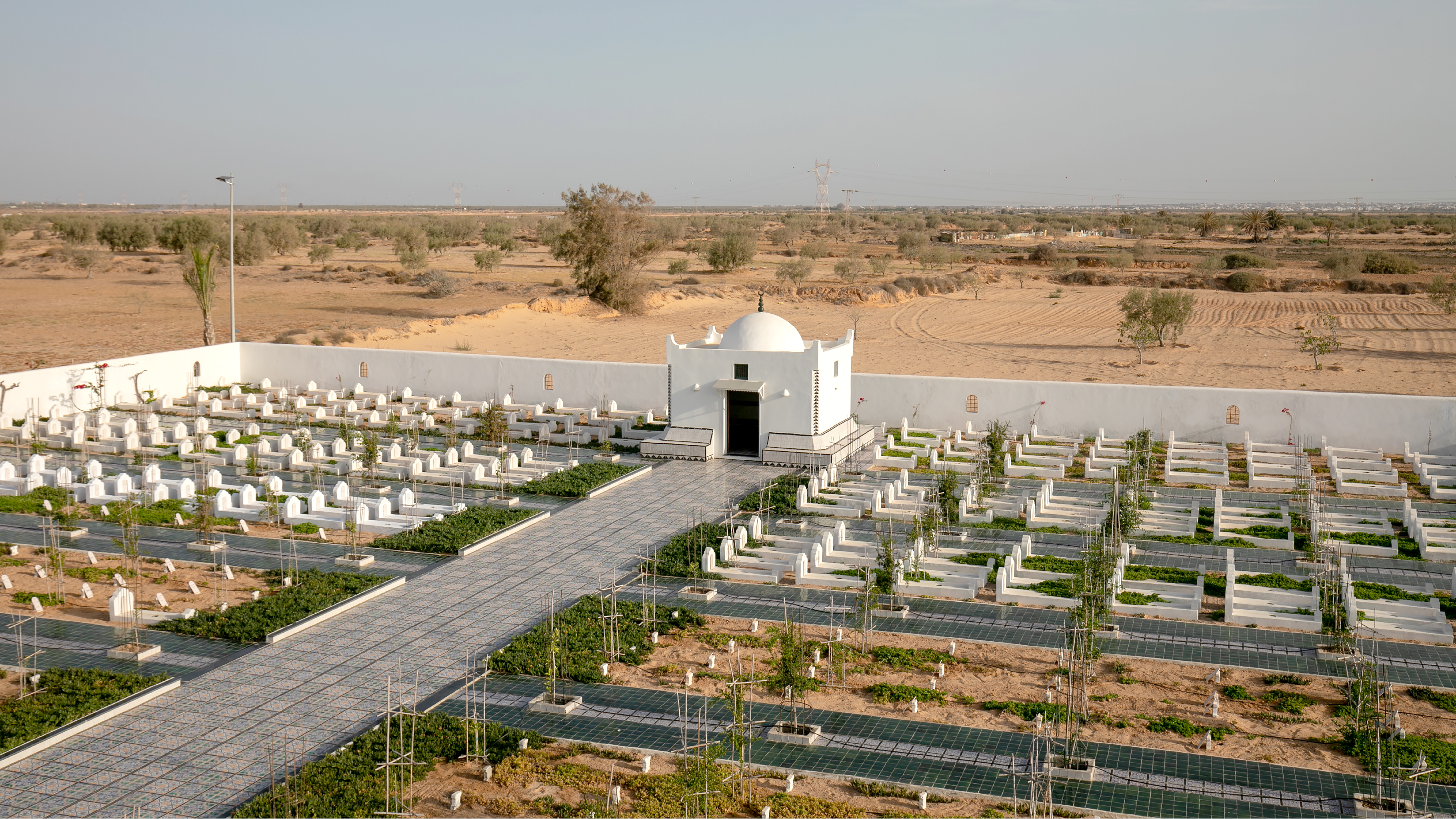
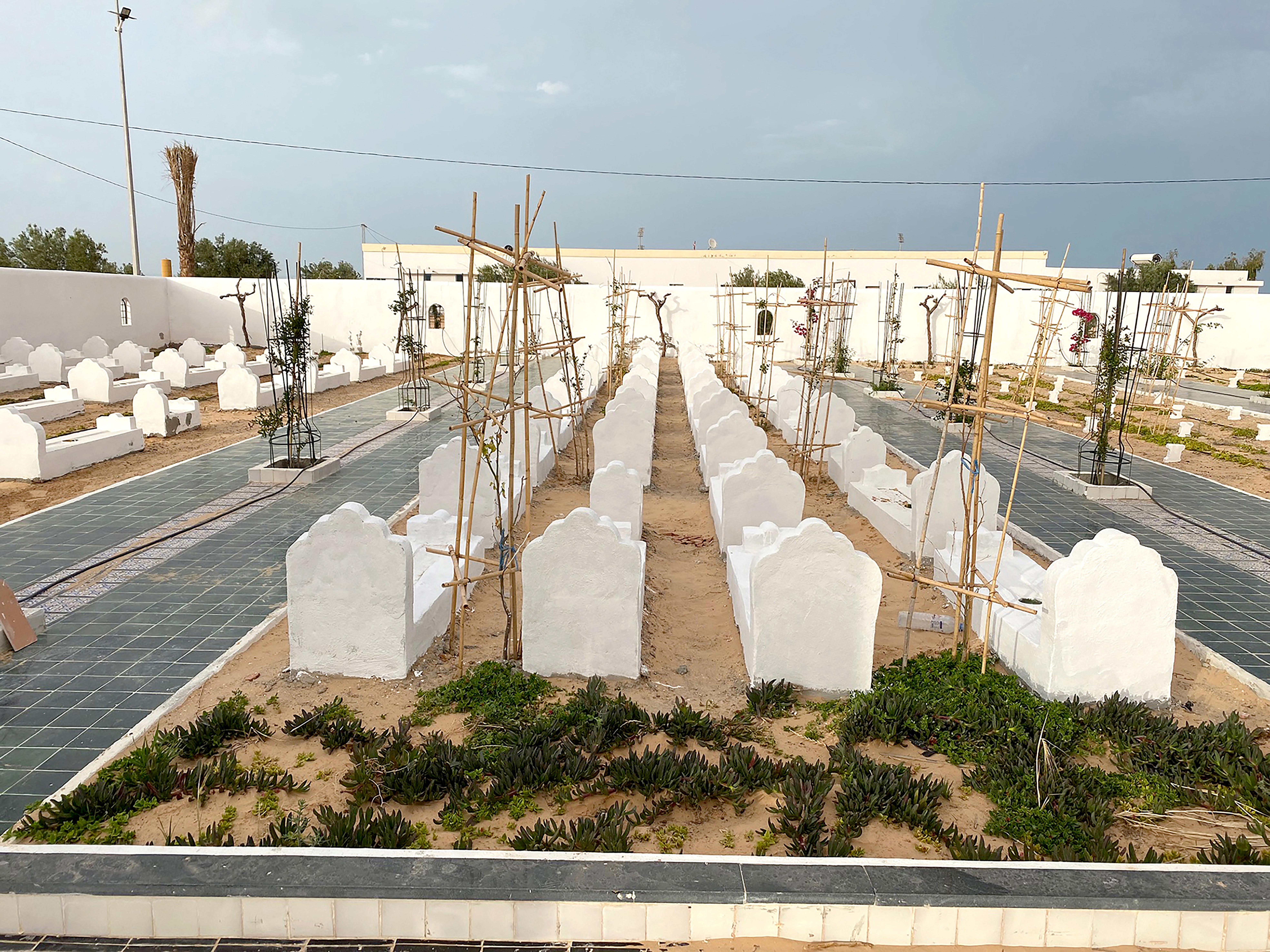
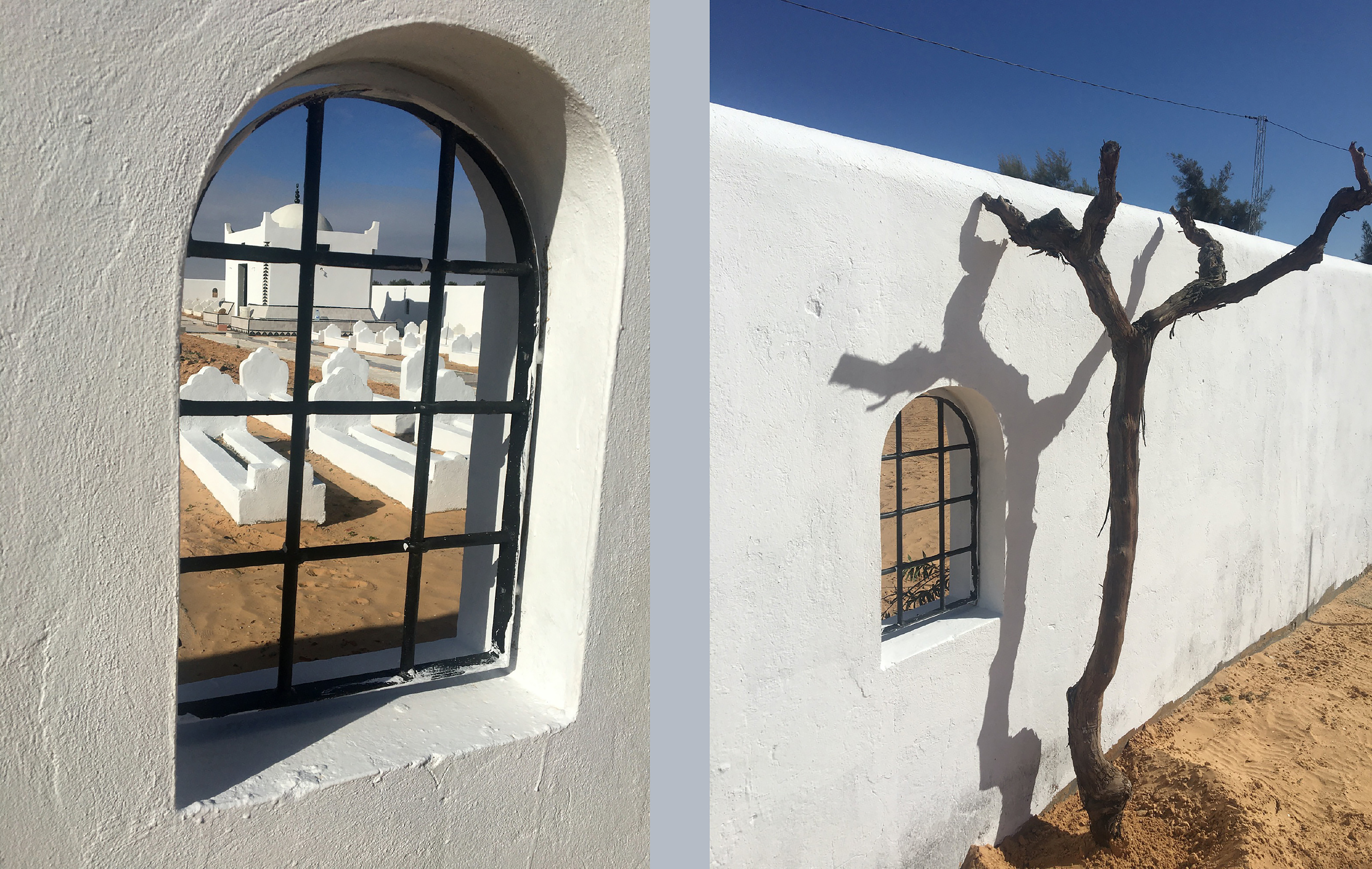

To cite this content :
Rachid Koraïchi, José Pablo Baraybar, Filippo Furri, Silvia Di Meo, “Migratory deaths, missing persons and their identification ”, 11 janvier 2024, URL : https://msf-crash.org/en/conferences-debates/migratory-deaths-missing-persons-and-their-identification
If you would like to comment on this article, you can find us on social media or contact us here:
Contribute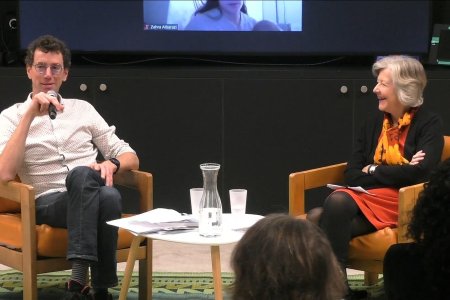 Conference
Conference
The challenges and dead ends of delivering aid in government-held areas in Syria
12/06/2023 - 07:30 PM 09:30 PM Ahmed Youssef Agnès Levallois Joseph DaherCrash and iReMMO were pleased to invite you on Wednesday 6 December at 6.30pm to a round table discussion on the challenges, constraints, and limits of humanitarian aid in Syrian government zones.
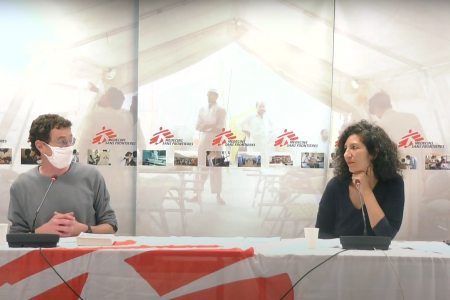 Conference
Conference
Asylum and exile. A history of the distinction between migrants / refugees
04/12/2021 - 06:30 PM 08:30 PM Karen AkokaOn April 12 2021 we had the great pleasure of hosting a virtual CRASH conference with political scientist and sociologist Karen Akoka, fresh from her publication in November of “Asylum and Exile. A History of the Refugee/Migrant Distinction" (La Découverte, 2020). The author described and analyzed the trajectory of OFPRA, the French institution founded in 1952 and responsible for granting refugee status; she provided an insight into how the history of the distinction between migrants and refugees was established in France.
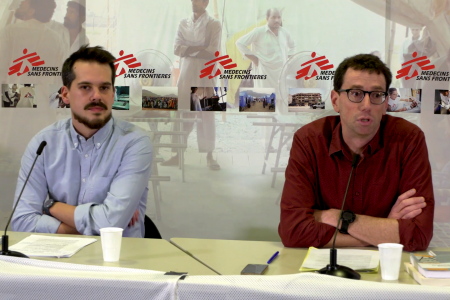 Conference
Conference
Borders and Hospitality
11/26/2018 - 06:00 PM 08:00 PM Benjamin BoudouConference/debate with Benjamin Boudou, political scientist and researcher at the Max Planck institute.
Past events
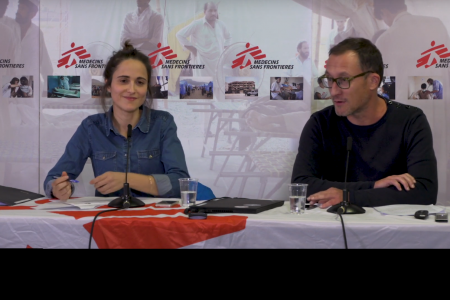 Conference
Conference
Motivations for mass violence: different interpretations
10/03/2019 - 06:00 PM 08:00 PM Nicolas MariotConference – debate, Thursday, 3 October 2019, 6-8pm, 1st floor meeting room at MSF, 8 rue Saint Sabin. Streaming and simultaneous translation into English available.
What turns ordinary men into killers? The CRASH team invited you to a conference – debate with the sociologist and historian, Nicolas Mariot, author of an article entitled « Faut-il être motivé pour tuer? Sur quelques explications aux violences de guerre » (Genèses, n°53, 2003, p. 154-177) and books such as “Face à la persécution. 991 Juifs dans la guerre" (with Claire Zalc, Paris, Odile Jacob, 2010), “Tous unis dans la tranchée ? 1914-1918, les intellectuels rencontrent le peuple" (Paris, Seuil, 2013). Nicolas Mariot presented two different interpretations of motivations for mass violence in the 20th century, drawn from a series of studies and surveys on the subject.
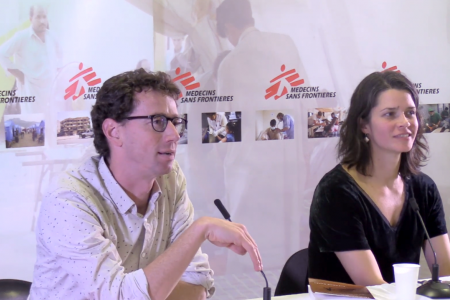 Conference
Conference
Third-Worldism and Sans-Frontiérisme 1954-1988
04/11/2019 - 06:30 PM 08:30 PM Eleanor DaveyEleanor Davey, historian of ideas and humanitarianism, senior lecturer at the Humanitarian and Conflict Research Institute, University of Manchester, discusses her book, Idealism Beyond Borders. The French Revolutionary Left and the Rise of Humanitarianism, 1954-1988, devoted to the intellectual history of sans-frontiérisme and Third-Worldism, in France, from the Algerian war to the early years of Médecins Sans Frontières.
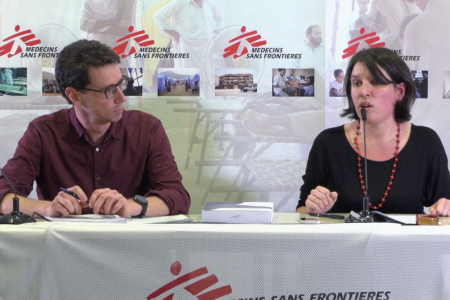 Conference
Conference
Healing foreigners in France: The State and the civil society organisations from the 80s to the 90s
12/17/2018 - 06:00 PM 08:00 PM Caroline IzambertThe CRASH team invited you to the debate-conference “Healing foreigners in France: The State and the civil society organisations from the 80s to the 90s” on Monday 17th of December 2018 from 6 to 8pm, in the 1rst floor room at the 8 rue Saint-Sabin. We hosted Caroline Izambert, who recently defended, at the EHESS, her PhD thesis focusing on the foreigners’ access to healthcare in France. Her title: “Heal foreigners?” The State and the civil society organisations for the health coverage of the poor and foreigners in France from the 1980s to the present day.
 Conference
Conference
Borders and Hospitality
11/26/2018 - 06:00 PM 08:00 PM Benjamin BoudouConference/debate with Benjamin Boudou, political scientist and researcher at the Max Planck institute.
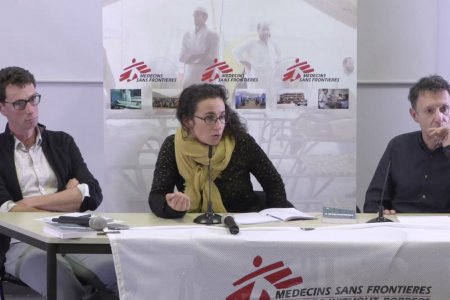 MSF-Crash
Conference
MSF-Crash
Conference
Immunization: new perspectives on vaccines - Conference with Lise Barnéoud
12/05/2017 - 06:00 PM 08:00 PM Lise BarnéoudWho profits from vaccination? Individuals? Society? Companies? Is vaccination efficient? Is it dangerous? Profitable? What are the factors influencing public opinion in this domain? Lise Barnéoud, science journalist and author of Immunisés ? Un nouveau regard sur les vaccins, has engaged in an investigation revealing multiple - and sometimes contradictory - realities observed in the French vaccination sector. She has carried out her investigation from three distinct viewpoints: the one of a mother who needs to decide whether to vaccinate her children or not; of a journalist leading an enquiry; and of a scientist analyzing how facts are built.
Lise Barnéoud was a Crash guest speaker at a conference on vaccination held on December 5, 2017. A discussion with Epicentre, Crash and the MSF Medical Department allowed us to exchange views on vaccinal policy, which remains a cornerstone of MSF operations and a recurring subject of discussion and controversy.
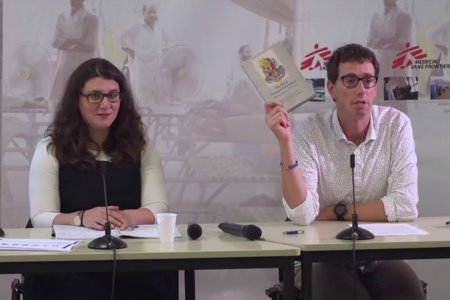 MSF
Conference
MSF
Conference
Humanitarian anthropology : conference with Sharon Abramowitz
10/23/2017 - 06:00 PM 08:00 PM Sharon AbramowitzSharon Abramowitz is an anthropologist and a visiting researcher at the Department of Anthropology at Rutgers University, co-editor of recently published Medical humanitarianism. Ethnographies of practice. She has devoted much of her work to responding to epidemics - most recently in Ebola, and in West Africa, Liberia in particular.
During the conference organized by MSF-Crash on 23 October 2017, she discussed the contribution of medical anthropology to humanitarian action as well as her latest book and most recent projects.
Période
Newsletter
Subscribe to our newsletter to stay informed about our latest publications. Interested in a specific author or thematic? Subscribe to our email alerts.
